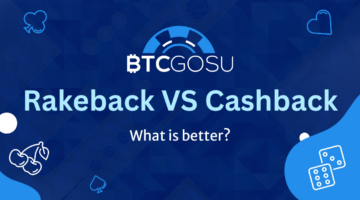Blockchain technology is reshaping online gaming, with crypto-based crash games like Mission Uncrossable leading a shift in player engagement and platform design. These games introduce decentralized models, faster payouts, and new economic systems while navigating evolving regulations and tech hurdles shaping the industry’s future through 2026 and beyond.
The impact of provably fair gaming
Provably fair gaming uses cryptographic methods to let players verify game outcomes independently, removing the need for third-party audits. By leveraging blockchain transparency and immutable records, it builds trust between players and operators—solving long-standing fairness concerns in online gambling.
Mission Uncrossable’s Blockchain backbone
The Mission Uncrossable chicken gambling game showcases next-gen crypto gaming by using distributed ledger technology to ensure full transparency. Every in-game action – in this case, a chicken’s crossing – is recorded and verifiable in real time, allowing players to authenticate outcomes without relying on centralized control.
SHA-3 hashing and real-time outcome verification
Mission Uncrossable uses SHA-3 hashing to produce provably fair outcomes, recording each event with immutable hash functions linked to seed values. This prevents tampering and allows players to verify results in real time, replacing institutional trust with transparent, algorithm-driven fairness.
Smart Contracts for Transparent Multiplier Calculations
Mission Uncrossable uses Ethereum-based smart contracts to automate multiplier payouts based on player actions and collision timing. These self-executing contracts remove human control, ensuring objective and instant reward distribution. Technically skilled players can audit the code, creating unmatched transparency in blockchain-based gaming.
Player Trust Through Decentralized Audits
The decentralized audit framework emerging in crypto gaming represents a significant departure from traditional regulatory oversight models, empowering player communities to collectively verify game integrity through distributed verification protocols and community-driven transparency initiatives.
Case Study: 70% of Players Prefer Provably Fair Games (2024 iGaming Business Survey)
A 2024 study by iGaming Business found that 70% of players prefer provably fair gaming systems over traditional casino models, valuing transparency and verifiability. This marks a shift in expectations, making blockchain-based fairness a mainstream demand. To stay competitive, traditional operators must adopt provably fair systems.
How Roobet’s Open-Source Code Reduces Manipulation Risks
Roobet promotes security and trust by open-sourcing its crash game logic on GitHub, allowing independent audits and community-led code reviews. This transparency reduces manipulation risk and strengthens defense, as hundreds of developers can identify flaws—offering greater protection than traditional centralized audits.
Play-to-Earn (P2E) Evolution in Crash Games
Integrating play-to-earn mechanics into crash games shifts the model from pure gambling to sustainable economies, where skill and engagement generate real digital asset rewards. This evolution adds economic value and fosters community, turning gameplay into both entertainment and opportunity.
Mission Uncrossable’s Gamified Reward System
Mission Uncrossable redefines crash game rewards by introducing achievement systems that recognize skill, persistence, and community involvement. These blockchain-verified milestones move beyond basic win-or-lose outcomes, offering players deeper engagement and long-term incentives tied to transparent, verifiable accomplishments.
Multiplier Milestones and NFT Badges for High Scores
Mission Uncrossable awards NFT badges for reaching multiplier milestones, creating collectible digital proof of player achievements. These blockchain-verified NFTs serve as social status symbols and may gain value as the player base grows, adding long-term engagement and incentivizing skill-based gameplay beyond financial rewards.
Cross-Platform Tokenization (e.g., $ROO to Ethereum Wallets)
Mission Uncrossable enables cross-platform token utility by making its $ROO token Ethereum-compatible, allowing players to use rewards in DeFi activities like yield farming and liquidity provision. This interoperability turns in-game rewards into multifunctional assets usable across blockchain ecosystems and decentralized investment platforms.
Building Player-Centric Economies
The development of player-centric economies in crypto gaming represents a paradigm shift toward community ownership and democratic governance structures that give players meaningful influence over game development and economic policies.
DAO Governance in Game Updates (e.g., Adjusting Collision Rates)
Mission Uncrossable uses DAO governance to let players vote on game changes using tokens. Players can propose and approve updates to features like collision rates and rewards, turning them into active stakeholders. This democratic model aligns game development with community preferences and long-term strategy.
2025 Trend: 55% of Players Engage with Gamified Features (Casino.org)
A Casino.org analysis shows 55% of online casino players now engage with gamified features, marking a clear shift toward achievement-based mechanics. This growth pressures traditional operators to adopt gamification and supports platforms like Mission Uncrossable that focus on rewards over basic gambling models.
Metaverse Integration and Cross-Reality Experiences
The convergence of crypto gaming with metaverse technologies represents the next evolutionary step in digital entertainment, creating immersive experiences that transcend traditional screen-based interactions through virtual reality integration and persistent digital world construction.
From 2D Chickens to 3D Virtual Worlds
The planned evolution of Mission Uncrossable from two-dimensional sprite-based graphics to fully immersive 3D virtual environments demonstrates the ambitious scope of metaverse integration initiatives within the crypto gaming sector.
Mission Uncrossable’s Roadmap: VR Highway Crossings by Q3 2026
The development roadmap for Mission Uncrossable includes full virtual reality implementation scheduled for Q3 2026, transforming the game from a traditional browser-based experience into an immersive VR environment where players physically navigate virtual highways. This technological evolution will enable haptic feedback integration, spatial audio implementation, and gesture-based controls that create unprecedented levels of player immersion. The VR implementation represents a significant technical undertaking that will require substantial infrastructure investment and partnerships with VR hardware manufacturers to ensure broad compatibility and optimal performance.
Land Ownership NFTs for Custom Game Arenas
The introduction of virtual land ownership through NFT-based property rights will enable players to create and monetize custom gaming arenas within the Mission Uncrossable metaverse. These virtual properties can be developed with unique obstacles, aesthetic themes, and gameplay modifications that other players can access through rental or purchase agreements. The land ownership system creates additional revenue streams for creative players while fostering community-driven content creation that expands the game’s variety and longevity.
Crypto as the Metaverse’s Native Currency
The adoption of cryptocurrency as the primary medium of exchange within metaverse environments creates seamless economic integration between virtual world activities and broader blockchain ecosystems, enabling fluid asset transfers and cross-platform value recognition.
Interoperable Tokens Between Games (e.g., Roobet ↔ Decentraland)
Token interoperability initiatives enable players to transfer value seamlessly between different gaming platforms and metaverse environments, with $ROO tokens potentially functioning as accepted currency within Decentraland virtual worlds and other blockchain-based gaming ecosystems. This cross-platform compatibility creates network effects that increase token utility while providing players with greater flexibility in how they deploy their digital assets across different entertainment and investment opportunities.
2025 Insight: 40% of Casino Transactions Use Crypto (Blockchain Research Lab)
Data from the Blockchain Research Lab indicates that 40% of online casino transactions now utilize cryptocurrency, representing a dramatic increase from previous years and demonstrating the mainstream adoption of digital assets in gambling applications. This adoption rate suggests that crypto integration is transitioning from niche appeal to industry standard, with traditional operators increasingly recognizing the necessity of blockchain payment integration to maintain market relevance and competitive positioning.
Regulatory Challenges and Global Compliance
The complex regulatory landscape surrounding crypto gaming creates significant challenges for operators and players, requiring sophisticated compliance strategies that navigate diverse jurisdictional requirements while preserving the decentralized principles that define blockchain-based gaming.
Navigating Jurisdictional Complexity
The global nature of blockchain networks creates complex regulatory challenges as crypto gaming platforms must simultaneously comply with multiple jurisdictional requirements while maintaining the borderless accessibility that defines decentralized gaming experiences.
KYC/AML Solutions for Anonymous Play (e.g., ZK-SNARKs in India)
Zero-Knowledge Succinct Non-Interactive Arguments of Knowledge (ZK-SNARKs) implementation enables compliance with Know Your Customer and Anti-Money Laundering regulations while preserving player privacy through cryptographic proof systems. In jurisdictions like India, where regulatory requirements demand identity verification but privacy concerns remain paramount, ZK-SNARK protocols allow platforms to prove compliance without revealing sensitive personal information. This technological solution creates a pathway for regulatory compliance that maintains the privacy principles fundamental to cryptocurrency adoption while satisfying government oversight requirements.
Geo-Blocking Adaptations in Regions with Strict Gambling Laws
Sophisticated geo-blocking implementations utilize advanced IP detection, device fingerprinting, and behavioral analysis to prevent access from jurisdictions with restrictive gambling regulations. These systems must balance regulatory compliance with user experience, implementing seamless access controls that don’t impede legitimate users while effectively preventing access from restricted territories. The technical complexity of modern geo-blocking requires continuous updates and monitoring to address VPN usage and other circumvention attempts while maintaining compliance with evolving regulatory requirements.
The Impact of Trump-Era Crypto Policies
The Trump administration’s evolving cryptocurrency policies create significant implications for crypto gaming operators and players, with regulatory changes potentially affecting taxation, reporting requirements, and market stability in ways that directly impact gaming platform operations.
IRS Reporting Exemptions for Sub-$600 Winnings
Recent Internal Revenue Service guidance establishing reporting exemptions for cryptocurrency winnings below $600 creates simplified tax compliance for casual crypto gaming participants while maintaining oversight for significant gambling activities. This policy change reduces administrative burden for both players and platforms while preserving regulatory oversight for substantial gambling winnings that could indicate money laundering or other illicit activities. The threshold-based approach recognizes the impracticality of reporting small cryptocurrency transactions while maintaining effective tax enforcement for meaningful gambling income.
Strategic Bitcoin Reserves and Price Stability for High Rollers
The administration’s promotion of strategic Bitcoin reserve accumulation by government entities creates price stability implications that particularly benefit high-stakes crypto gambling participants. Reduced Bitcoin volatility resulting from institutional accumulation and strategic reserves makes cryptocurrency more viable for large-scale gambling activities, as players can engage in high-stakes games without excessive exposure to price fluctuation risks. This stability enhancement makes crypto gaming more attractive to traditional high rollers who previously avoided cryptocurrency due to volatility concerns.
Future Innovations: AI, DAOs, and Beyond
The integration of artificial intelligence and decentralized governance structures represents the frontier of crypto gaming innovation, creating adaptive gaming experiences and community-driven development processes that will define the industry’s evolution through the next decade.
AI-Driven Personalization in Crypto Games
Artificial intelligence implementation in crypto gaming creates unprecedented opportunities for personalized gaming experiences that adapt to individual player preferences, skill levels, and behavioral patterns while maintaining the transparency and fairness principles fundamental to blockchain-based gaming.
Dynamic Difficulty Adjustment Based on Player Behavior
Machine learning algorithms analyze player performance data to implement real-time difficulty adjustments that maintain optimal challenge levels for individual users. In Mission Uncrossable, AI systems monitor reaction times, risk tolerance patterns, and success rates to dynamically modify traffic density, obstacle timing, and reward multipliers. This personalization ensures that both novice and expert players encounter appropriate challenge levels that maximize engagement while maintaining fair gameplay mechanics verified through blockchain transparency protocols.
ChatGPT-5 Integration for Real-Time Strategy Coaching
Advanced language model integration provides personalized strategy coaching and real-time gameplay advice through natural language interaction systems. ChatGPT-5 implementation enables players to receive strategic guidance, risk assessment, and pattern recognition advice during gameplay sessions, creating educational value that extends beyond entertainment. This AI coaching capability democratizes expert-level strategy knowledge while creating additional engagement layers that encourage skill development and longer-term platform loyalty.
DAO-Governed Game Development
Decentralized Autonomous Organization governance represents a revolutionary approach to game development that transforms players from consumers into stakeholders with direct influence over product evolution and strategic direction.
Player Voting on New Features (e.g., “Daredevil Mode” in Mission Uncrossable)
Community governance protocols enable tokenized voting on new feature implementations, with proposals like “Daredevil Mode” requiring majority approval from active community members before development resources are allocated. This democratic development process ensures that new features align with community preferences while creating transparency in development prioritization and resource allocation decisions.
The voting system promotes genuine community-level ownership over game evolution while maintaining development efficiency through structured, player cetric proposal and approval processes.
Revenue Sharing via Governance Tokens (e.g., Stake’s $STAKE)
Governance token holders earn revenue shares based on platform performance, aligning player incentives with platform growth. The $STAKE model uses decentralized voting and smart contracts to reward active participants. This system turns gaming communities into investment cooperatives where engagement delivers both entertainment and financial returns.
Security and Anonymity in a Volatile Market
The intersection of cryptocurrency volatility and high-stakes gaming creates unique security challenges that require sophisticated risk management strategies and privacy protection measures to ensure platform stability and user safety.
Mitigating Risks in High-Speed Crypto Gambling
The rapid pace of crypto gambling transactions and market volatility creates compound risks that require advanced risk management systems and security protocols to protect both platforms and players from various crypto gambling scams and other assorted threats.
Cold Storage Solutions for $1M+ Jackpots
Multi-signature cold storage protects jackpot pools using offline keys and distributed approvals. Hardware modules and air-gapped systems secure funds even during platform breaches. Multiple authorized signatures are required to move funds, preventing cyber attacks and insider fraud while keeping liquidity available for instant payouts from crypto casinos.
Time-Locked Withdrawals to Curb Impulsive Losses
Smart contract time-locks create cooling-off periods for large withdrawals, helping players avoid impulsive decisions while keeping full control of their funds. Players can customize delay durations and access emergency overrides when needed. This system promotes responsible gambling by encouraging thoughtful action without blocking legitimate payouts.
Privacy-First Gaming Infrastructure
The implementation of privacy-preserving technologies creates secure gaming environments that protect player identity and transaction history while maintaining compliance with applicable regulatory requirements and platform security protocols.
Tor Network Support for Untraceable Play
Tor network compatibility enables anonymous gaming by hiding player IP addresses and locations through encrypted routing. This supports users in restrictive regions and enhances privacy for crypto gamblers. To prevent abuse, platforms implement specialized security protocols while preserving the core anonymity Tor offers.
2025 Stat: 55% of Indian Players Use Crypto for Anonymity (Casino.org)
A recent Casino.org data study focused on India-based gamblers shows that 55% of Indian players prefer crypto casino platforms to preserve transaction anonymity and avoid banking oversight. This highlights strong demand for privacy-driven gaming in regions with regulatory or social barriers, reinforcing crypto gambling anonymity as a key factor in crypto casino growth and marketing.
Summary
The future of crypto gaming, led by game titles like Mission Uncrossable and well-regarded operators like Stake and Vave Casino, marks a shift from traditional gambling to immersive digital ecosystems. By combining blockchain transparency, AI, metaverse features, and decentralized governance, these platforms enable player ownership, economic participation, and sustainable models that look set to shape the next decade of casino gaming.








Login
Register